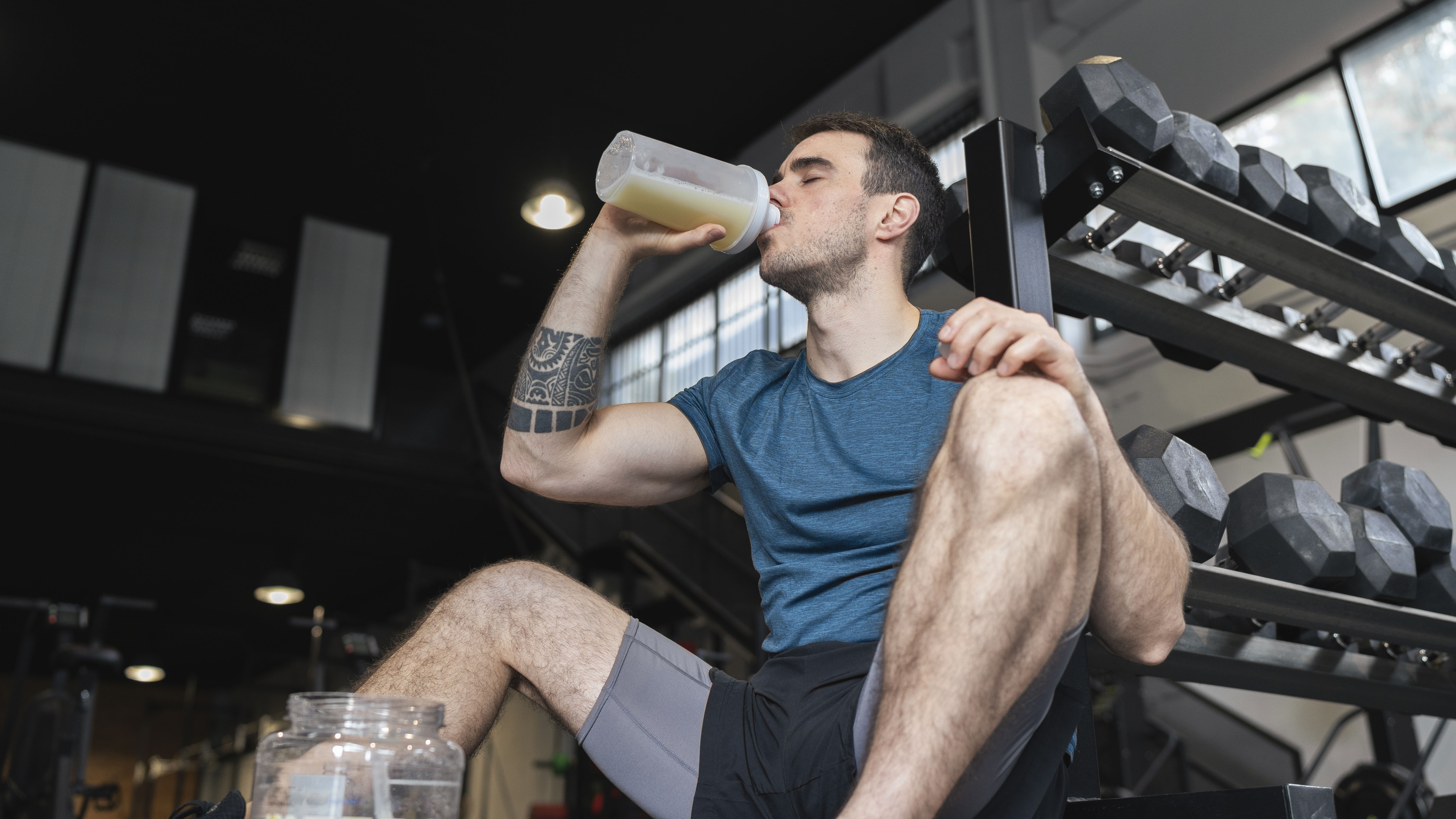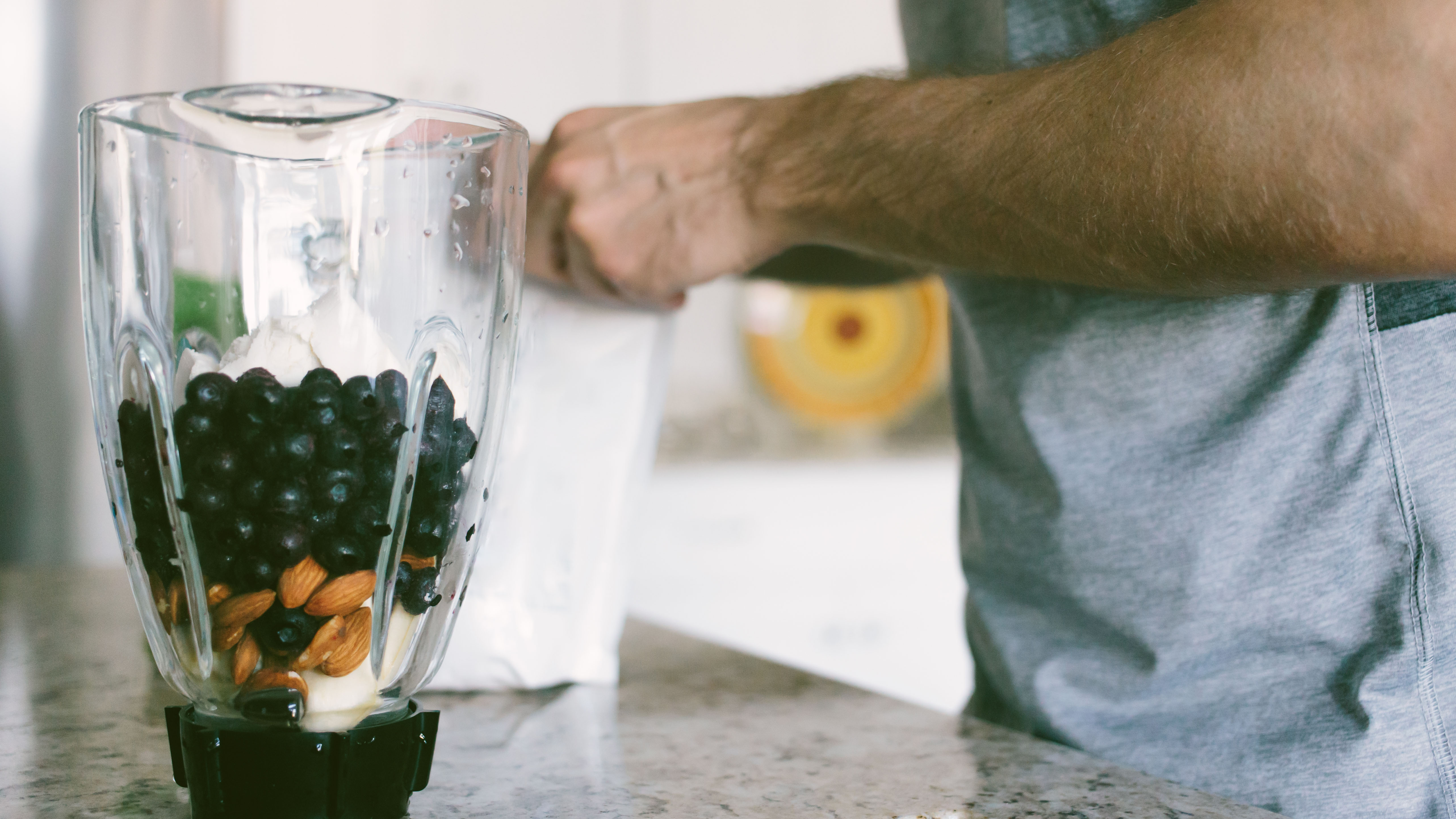
Start your week with achievable workout ideas, health tips and wellbeing advice in your inbox.
You are now subscribed
Your newsletter sign-up was successful
When is the best time to drink protein shakes? It’s no secret that protein is good for you, forming one of the three most important components of our diet as a macronutrient (alongside fat and carbohydrates). But is there a specific time of day we should be consuming it? We spoke to several nutrition and health experts to find out.
If you need more advice on protein, we've got you covered; browse through our pick of the best protein powders for women or read up on the differences between plant protein and whey protein.
Should you drink protein in the morning or at night?

There's a lot of conflicting advice on the best time to drink protein shakes. The International Society of Sports and Nutrition advises consuming protein within two hours after a workout, to get the maximum muscle-building benefits.
However, there's also some evidence that consuming protein before sleep could be beneficial for muscle recovery. A systematic review from the journal of Physical Activity and Nutrition outlined that ingesting casein before sleep could boost protein metabolism.
Jamal Ramsey, a Sports Science graduate and cofounder of female health startup JRNY, agrees with this sleep-driven approach: “Protein ingested immediately prior to sleep is effectively digested and absorbed, thereby increasing amino acid availability during overnight sleep, maximizing muscle growth.”

Jamal Ramsey has a degree in Sports Science and has spent 5 years advising women on their health and nutrition at BUPA. He has since gone on to Co-found female health startup jrny.
But people turn to protein powders for lots of different reasons. As Ramsey says, someone who’s using protein powder for weight loss might want to try consuming it when they wake up: “Drinking a shake in the morning can help to distribute the protein you eat more evenly throughout the day and can help you feel fuller for longer.”
The type of protein you choose could also have an impact on when you should be finishing your shake. According to nutritionist Rob Hobson, the best protein for night time (before bed) is casein, as this digests slowly in the body. After a workout though, you might opt for a whey-based protein, as this is the quickest to digest.
Start your week with achievable workout ideas, health tips and wellbeing advice in your inbox.

Rob Hobson is an award-winning registered nutritionist, offering consulting nutritionist services, nutrition training, brand media representation and general nutrition guidance. He holds a bachelor's degree in nutrition and a master's degree in public health.
In brief, there are a variety of factors that could impact the best time to consume your protein shake – but for muscle building, drinking it within two hours following a workout session, or just before bed, is probably your best bet.
Is it ok to drink protein shakes on an empty stomach?

Ramsey advises caution if you have an underlying health condition, but says for most people a protein shake to start the day is no issue. “Unless you have a digestive issue like IBS or Crohn's, it is perfectly fine to drink protein on an empty stomach,” he says.
Be aware that protein powder can actually suppress hunger. A review in the British Journal of Nutrition indicates that eating protein can cause feelings of satiety even when in a negative energy balance or calorie deficit. This is useful if you’re trying to lose weight, but the ideal conditions for building muscle actually involve a small calorie surplus, according to the International Sports Sciences Association.
Can I drink two protein shakes in one day?
Ramsey tells Fit&Well that generally speaking, two protein shakes a day is fine, but you should ask yourself if it’s necessary. “Your body will simply get rid of any protein that you don't need,” he explains. “The better question to ask yourself is what is your goal, and does that goal require more than one shake per day?”
Dr. Bartlett, a general medical practitioner and Team GB snowboarder, explains how to calculate your protein requirements, to see if you might need to have more than one shake in a day.
“As a rule of thumb if you are exercising you will require 1g of protein per kilo of body weight, so an 80kg male will require 80g of protein per day for health and wellbeing,” he says. “Protein is available from many sources, meat, fish, eggs, beans etc so if you are not achieving this from your diet then you can have 2-3 shakes per day to make up the shortfall.”

Dr Gary Bartlett is a professional athlete and full time squad member on the British Snowboarding Team, representing Great Britain in Snowboard cross. He is also a qualified medical doctor, and fully qualified as a General Practitioner in August 2015
Is water or milk better for protein shakes?

This mostly comes down to your preference. There are minor nutritional differences between a water-based protein shake and a milk-based one, as Hobson explains: “Milk adds more protein and other nutrients to the shake while water doesn’t. You might add milk and other nutrients if your goal was to try and increase your body weight - yes this is a concern for some people!” he says. “I personally prefer to use just water as I find the addition of milk a little bit too creamy.”
If you struggle with digestive issues, a shake with water might be best for you. “Water can cause less discomfort/bloating,” says Ramsey. “But a plant-based milk can be perfect for a protein shake.”
Dr Bartlett agrees that water is often best. “If using shakes to supplement a diet, I would suggest water as it will be lower in calories and more easily absorbed.”

Lou Mudge is a Health Writer at Future Plc, working across Fit&Well and Coach. She previously worked for Live Science, and regularly writes for Space.com and Pet's Radar. Based in Bath, UK, she has a passion for food, nutrition and health and is eager to demystify diet culture in order to make health and fitness accessible to everybody.
Multiple diagnoses in her early twenties sparked an interest in the gut-brain axis and the impact that diet and exercise can have on both physical and mental health. She was put on the FODMAP elimination diet during this time and learned to adapt recipes to fit these parameters, while retaining core flavors and textures, and now enjoys cooking for gut health.
